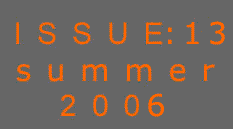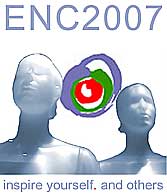 |
 |
Issue No.13 Summer
|
| ENS News |
| ENS Events |
| Member Societies & Corporate Members |
| Petten research reactor converts to using low-enriched fuel Neutron Kinetics of the Chernobyl Accident Nuclear Option in Countries with Small and Medium Electricity Grids |
YGN Report |
| European Institutions |
| MEP Forum discusses economics of nuclear energy |
| ENS World News |
ENS Members |
| Links to ENS Member
Societies Links to ENS Corporate Members Editorial staff ______________________ |
| _____________________ |
 TopSeal 2006 17.9. - 20.9.2006 Olkiluoto, Finland |
| _____________________ |
 TopFuel 2006 22 - 26 October 2006 in Salamanca |
| _____________________ |
| _____________________ |
|
|
 |
 |
 |
 |
Under the GAP programme, GTRI works to develop partnerships with government agencies and operators to identify, remove and facilitate the final disposal of GAP materials. The first product of this collaborative effort was the project carried out by GTRI and AREVA to decide upon potential reprocessing at AREVA’s specialised facilities in France.
During this first session, delegates were also given an overview of global activities involving TRIGA reactors. One special application that was outlined was the reconstruction of the ENEA Triga RC-1 research reactor as part of the TRADE project (an ADS feasibility system).
The second session covered what is traditionally the hottest topic on the RRFM agenda, namely fuel development, qualification and licensing. This subject is of fundamental importance to any enrichment reduction initiative. The goal of research in this area is the final qualification of a high-density UMo fuel by the end of 2010 and the conversion of all reactors, including the US domestic high-power reactors, by 2014.
This year, RRFM also heard about the very encouraging results that have emerged from tests involving the addition of silicon in the aluminum matrix of dispersed fuels. Another issue analysed by delegates was the behaviour of UMo monolithic fuels under irradiation.
 |
 |
 |
 |
The third session was dedicated to spent fuel management, back-end options and transportation. Special emphasis was placed on the conditions required to ensure the safe long-term storage of aluminum clad fuels under water. Finally, delegates heard about the conditions and procedures that must be respected to ensure the successful reprocessing of MTR fuels at the La Hague plant, in France.
Session 4 focused on reactor operation, fuel safety and core conversion projects that have been carried out with the ITR-Sofia, FRM-II, HFR-Petten and HOR-Delft reactors. Other projects in this area that were presented included a new concept for a super high-flux reactor, the qualification of a Chilean test fuel element and the safety evaluation of the IRIS experiment.
In parallel to Session 4, RRFM included for the first time an extra session, entitled Innovative Methods in Research Reactors.
Once again, RRFM, one of ENS’ flagship annual technical conferences, proved to be a very successful platform for the exchanges of views and data between professionals in the nuclear energy sector. It is also a useful catalyst for discussion about the major factors influencing the future direction of reactor fuel management research.
For more information about RRFM - the full agenda,
speakers, copies of the presentations etc., please visit the RRFM
pages of the ENS website at: www.rrfm2006.org
| |


